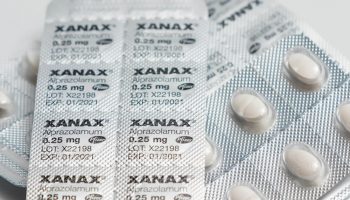Withdrawal to benzodiazepines such as Valium requires a medically-supervised treatment because the risks can be too serious to endure. Despite the essence of the drug in treating withdrawal to other substances such as alcohol and short-acting benzodiazepines, it also contains a highly addictive potential which makes users vulnerable to physical dependence.
Although a lot of experts agree that by using Valium as prescribed, treatment can be safe and effective, it is a known fact that taking the drug for about four weeks can already make one prone to experiencing withdrawal symptoms. Some people even resort to the endless use of the substance just so that they can avoid the pain from withdrawal.
There are many medicines prescribed to patients when they are suffering from intense withdrawal effects. By talking to a professional expert, one can get out of the loop of using Valium over a while and take control of their life again, live sober and drug-free.
How To Ensure A Safe Valium Withdrawal
 Withdrawal outcomes always differ among every person as multiple factors contribute to the degree of the symptoms one can experience. Overall health condition is one factor and duration of substance use is another one. The amount of doses taken over some time definitely counts as well.
Withdrawal outcomes always differ among every person as multiple factors contribute to the degree of the symptoms one can experience. Overall health condition is one factor and duration of substance use is another one. The amount of doses taken over some time definitely counts as well.
To ensure the safety and effectiveness of withdrawal treatment, one must be thoroughly guided by a medical expert. Physicians will help prevent extreme cases of withdrawal by first tapering off one’s dosage. Although there is no specific length of time as to how long the taper schedule will take, following one allows the body to cope with the absence of the drug.
Quitting cold turkey is highly discouraged due to the multiple health risks it poses. On top of that, the tendency to return to substance use is very high because this option will only increase the level of cravings a person can experience. The terrible thing about failed withdrawal attempts is how withdrawal becomes more complicated over time.
To ensure a safe withdrawal of the substance, one must adhere to the advice of medical experts. You need to religiously take your prescribed medicines. Secondly, you need to undergo counseling to correct your unhealthy behavior. Both are needed for long term sobriety.
What Medicines are Commonly Prescribed for Valium Withdrawal
Doctors give medicines that help you with detox treatment. These medicines help aid patients to cope with specific withdrawal symptoms, minimize intense cravings for the drug and basically prevent complications to arise during treatment.
Substitute drugs for Valium
 Some people find the use of potentially addictive substances during withdrawal absurd. However, this helps limit the severity of withdrawal symptoms because it deceives the brain that the substance is still in the system. On top of that, long-acting substances are mostly prescribed and this only requires a few doses, reducing the potential for addiction.
Some people find the use of potentially addictive substances during withdrawal absurd. However, this helps limit the severity of withdrawal symptoms because it deceives the brain that the substance is still in the system. On top of that, long-acting substances are mostly prescribed and this only requires a few doses, reducing the potential for addiction.
Librium is a substitute substance of Valium which is long acting. It is given to patients undergoing detox. After the patient is done with detox, tapering off from Librium will be next. With a constant assessment of progress, this substitution can be safe and effective.
Another option for substitution is the use of phenobarbital. This is a barbiturate that belongs to the class of anticonvulsants that acts even longer than benzos. This is an advantage because its mechanism in the body reduces the risk of developing physical dependence throughout treatment.
Anticonvulsants
Anticonvulsant drugs function for the treatment of seizures. Examples that are mostly prescribed by physicians during withdrawal are carbamazepine and valproate. This comes in handy for patients who have a history of suffering from seizures, a common condition among patients who have been into Valium treatment to control these episodes.
The risk of grand mal seizures during withdrawal to Valium is fatal. This is when the brain experiences electromagnetic shock and results in a state of coma. Although this rarely happens, the use of anticonvulsants and other prescribed drugs can help keep the brain calm and limit too much activity that may be triggered by substance withdrawal.
Antidepressants
 Depression is a very common withdrawal symptom from any substance, and this can also be fatal when left untreated. Suicidal ideations can be too strong to endure that is why antidepressants are recommended to limit these episodes. This medication is helpful as well for those patients with anxiety disorder.
Depression is a very common withdrawal symptom from any substance, and this can also be fatal when left untreated. Suicidal ideations can be too strong to endure that is why antidepressants are recommended to limit these episodes. This medication is helpful as well for those patients with anxiety disorder.
Rebound anxiety usually comes at the onset of withdrawal and this can be more extreme than the usual cases. With Selective Serotonin Reuptake Inhibitors (SSRI) antidepressants, the condition can be alleviated. Another antidepressant classified specifically as Serotonin Antagonist Reuptake Inhibitor (SARI) such as trazodone promotes a better quality of sleep.
SARI works best among those who suffer from insomnia during withdrawal. Melatonin can also be prescribed to treat similar problems. These are important prescriptions since they induce extreme comfort to a body that has been strained and exhausted greatly by the chemical changes of the brain brought by the absence of the drug.
Antihypertensive drugs
These are also prescribed to patients who experience hypertension during withdrawal. Propranolol, a beta-blocker, can control blood pressure and also limit rapid heartbeat and tremors. Clonidine is another kind that can be used for these purposes. It is essential that there is close monitoring with the patient’s vital signs during detox. If there are life threatening situations, then a nurse or doctor can attend to the patient right away.
Muscle relaxant
During detox, there is a strong chance of relapse. That’s due to the Valium cravings, to counter that, your doctor must give you some medications. Doctors prescribe baclofen, a muscle relaxant, to fight off these strong cravings although psychological interventions are recommended to really strengthen personal coping skills.
Overall, detox treatment is a complex process that requires professional medical care to ensure the quality of outcomes in the long run. With the use of certain drugs to aid withdrawal, the experience can be less stressful and the body can be more stabilized to continue post-withdrawal treatment later on.



